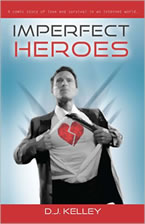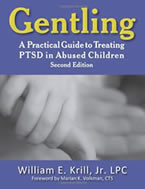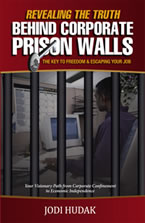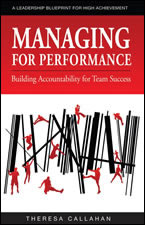Welcome to Issue 29 of the SUPERIOR BOOK PRODUCTIONS newsletter!
Here’s a little description of my new book from the back cover: From the horrors of sixteenth century Italian castles to twenty-first century plagues, from the French Revolution to the liberation of Libya, Tyler R. Tichelaar takes readers on far more than a journey through literary history. The Gothic Wanderer is an exploration of man’s deepest fears, his efforts to rise above them for the last two centuries, and how he may be on the brink finally of succeeding. Whether it’s seeking immortal life, the fabulous philosopher’s stone that will change lead into gold, or human blood as a vampire, or coping with more common “transgressions” like being a woman in a patriarchal society, being a Jew in a Christian land, or simply being addicted to gambling, the Gothic wanderer’s journey toward damnation or redemption is never dull and always enlightening. Tichelaar examines the figure of the Gothic wanderer in such well-known Gothic novels as The Mysteries of Udolpho, Frankenstein, and Dracula, as well as lesser known works like Fanny Burney’s The Wanderer, Mary Shelley’s The Last Man, and Edward Bulwer-Lytton’s Zanoni. He also finds surprising Gothic elements in classics like Dickens’ A Tale of Two Cities and Edgar Rice Burroughs’ Tarzan of the Apes. From Matthew Lewis’ The Monk to Stephenie Meyer’s Twilight, Tichelaar explores a literary tradition whose characters reflect our greatest fears and deepest hopes. Readers will find here the revelation that not only are we all Gothic wanderers, but we are so only by our own choosing. For more information, check out my new website www.GothicWanderer.com. Thank you for reading and have a wonderful autumn! Tyler R. Tichelaar New Books |
Ten years ago, on 9/11, Chris Osborne’s wife left him for another man. Since then, Chris has tried everything possible to find the right woman for him...everything except online dating. Reasoning that his chance of accidentally finding the right woman is less likely than using online dating and its matching methods to select suitable dates, he plunges in full force, finding more women are interested in him than he could have imagined. Chats lead to emails and phone calls, and before he knows it, Chris has several dates lined up. To read more, visit Imperfect Heroes.
|
Krill offers plenty of advice and approaches to facilitating this level of communication from using toys for children to act out the experiences they had to being gentle in an adult’s approaches with children so as not to alarm them, such as asking permission to touch them, hug them, sit beside them, and even to move only halfway toward children so you do not frighten them and so they become comfortable with your presence. Readers will be surprised, touched, and enlightened by the techniques and wisdom that the “gentling” process offers. To read more, visit Gentling. |
But Anna Liotta takes the generational differences so much further than just what many view as certain generations’ idiosyncrasies. As the eighteenth of nineteen children, herself a Gen Xer with Baby Boomer siblings and Traditionalist parents, and now Millenialist and Nexter nephews and nieces, Liotta knows what it is like to be surrounded by multiple generations and have to communicate effectively with all of them. And she has conveyed her own experiences and used them as the touchstone for a multitude of research on the generations and how they function, and especially, how to function with so many different generations in the workplace. To read more, visit Unlocking Generational Codes. |
In Revealing the Truth Behind Corporate Prison Walls, Jodi Hudak details how she began her career in corporate America with high expectations. She wanted to work hard and move up in a company, but she soon discovered that as hard as she worked, she couldn’t get ahead; promotions were not based on hard work, talent, or merits alone, but office politics, backstabbing, and one’s success in practicing the Seven Deadly Sins. To read more, visit Revealing the Truth Behind Corporate Prison Walls. |
I have read several books about employee motivation and the workplace, and as a former manager, I know from experience a lot about what does and does not work. Sometimes a manager even knows what he should do but lacks the motivation to do it, or he simply needs another person on the same level to talk with about what needs to be done. Theresa Callahan would be that ideal person, that angel on the shoulder I would have liked to have had around to discuss my employee and management issues with. To read more, visit Managing for Performance. |
Want to be an editor yourself? Check out:

The Nomad Editor
Tyler R.
Tichelaar,
PhD

 If you haven’t tried online dating, you are probably wondering whether it really works, and if you have tried online dating, you probably have enough stories that you could write a book. Well, D.J. Kelley has written that book, Imperfect Heroes, and it is all and more than you ever could have imagined.
If you haven’t tried online dating, you are probably wondering whether it really works, and if you have tried online dating, you probably have enough stories that you could write a book. Well, D.J. Kelley has written that book, Imperfect Heroes, and it is all and more than you ever could have imagined. Gentling is a long overdue book about how to help adolescents suffering from PTSD due to abuse. By “gentling,” the author William Krill is referring to being both kind yet at times firm with a child, allowing a child to express him- or herself on a comfortable level, and finding ways to help the child express what needs to be said.
Gentling is a long overdue book about how to help adolescents suffering from PTSD due to abuse. By “gentling,” the author William Krill is referring to being both kind yet at times firm with a child, allowing a child to express him- or herself on a comfortable level, and finding ways to help the child express what needs to be said. Early in Unlocking Generational CODES, Anna Liotta tells a story of her ninety-plus mother washing and saving a piece of tinfoil so it can be reused again. It’s a simple story but one I could instantly relate to as I thought of my own grandmother who would reuse paper plates and whom I used to remind, “Grandma, the Great Depression is over.” Most of us recognize the thrift of that generation as a generational mark; its members experienced or feared want and were going to ensure they were not in that situation again.
Early in Unlocking Generational CODES, Anna Liotta tells a story of her ninety-plus mother washing and saving a piece of tinfoil so it can be reused again. It’s a simple story but one I could instantly relate to as I thought of my own grandmother who would reuse paper plates and whom I used to remind, “Grandma, the Great Depression is over.” Most of us recognize the thrift of that generation as a generational mark; its members experienced or feared want and were going to ensure they were not in that situation again. With the state of the economy as it is, the rise of the Occupy Wall Street movement, and the corporate corruption of recent years, I don’t think anyone will be surprised by Jodi Hudak’s comparison of a corporation to a prison, and anyone who has worked in corporate America probably knows what it feels like to be a prisoner at work, trapped in a job you hate, or with coworkers you dislike because they mistreat others and backstab, yet you cannot leave because your livelihood is dependent upon that job.
With the state of the economy as it is, the rise of the Occupy Wall Street movement, and the corporate corruption of recent years, I don’t think anyone will be surprised by Jodi Hudak’s comparison of a corporation to a prison, and anyone who has worked in corporate America probably knows what it feels like to be a prisoner at work, trapped in a job you hate, or with coworkers you dislike because they mistreat others and backstab, yet you cannot leave because your livelihood is dependent upon that job. While all managers want to be leaders who motivate and inspire their employees, sometimes the workload and the employees’ attitudes, and sometimes a manager’s lack of awareness about what he is doing wrong or how he is getting in his employees’ way, can interfere with sustaining a productive and enjoyable work environment.
While all managers want to be leaders who motivate and inspire their employees, sometimes the workload and the employees’ attitudes, and sometimes a manager’s lack of awareness about what he is doing wrong or how he is getting in his employees’ way, can interfere with sustaining a productive and enjoyable work environment.